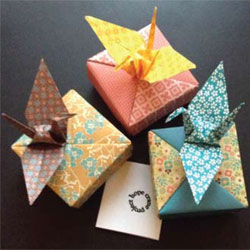Patient & Family Centered Care (PFCC) is a nationwide movement that is influencing how hospitals and clinics partner with patients and families to shape the development, delivery, and evaluation of programs, policies, and services.
Established in May 2012, the Department of Psychiatry’s PFCC Committee has grown into a vibrant working partnership in which patients, families, faculty, and staff collaborate to improve communication and the standard of care across ambulatory, inpatient, and emergency settings.

The mission of the department’s PFCC Committee is to promote, cultivate, and celebrate healthcare guided by patients and families. By inviting an active exchange of experiences and ideas to inform and shape the healing process, the committee strives to keep the needs of each patient and family at the forefront of care. The committee also works to foster an environment of collaboration between patients, families, staff, and faculty that recognizes patients and families as essential members of the healthcare team.
The PFCC approach recognizes that emotional, social, and developmental support are integral components of healthcare, and respects that families play an essential role in ensuring the health and well-being of people of all ages. If you are interested in volunteering with the Department of Psychiatry’s PFCC Committee, please contact Michele Brown, who chairs our Psych PFAC Committee: [email protected]
Hope Crane Project
by Stephanie Heit
The Hope Crane Project was inspired by a small purple origami crane I have sitting on my desk. It was a gift from my roommate during my last stay on the psychiatric inpatient unit. She was from Japan and made beautiful origami art. She shared with me that traditional legend says if you make a thousand cranes in a year you can manifest a wish often around health and healing. I was truly touched by the gift, especially the color, since she’d heard me say purple was my favorite in one of the therapy groups.
As a National Alliance on Mental Illness (NAMI) member and a former volunteer patient advisor at the University of Michigan, Department of Psychiatry, Patient & Family Centered Care (PFCC), I participated in discussions on how to create and implement peer programs and connect with people living with mental illness. In my life, creativity has always been a medium for connecting with myself and the world around me, whether through movement as a dancer and massage therapist or words as a poet and teacher. I wanted to find a creative way to offer a symbol of connection and support especially to those people needing acute care. The Hope Crane Project was born.
The project offers University of Michigan psychiatry inpatients an origami box and crane handmade by volunteers as a gift from Psychiatry and the Patient & Family Centered Care (PFCC). PFCC’s mission is to promote, cultivate and celebrate health care guided by patients and families. An accompanying note reads:
This origami box and crane were handmade for you by volunteers as a gift from the University of Michigan Department of Psychiatry Patient & Family Centered Care whose mission is to promote, cultivate and celebrate health care guided by you and your loved ones. Japanese legend says that folding a thousand cranes will manifest a wish often around health and healing. It is in that spirit we offer you this gift. May it inspire hope during your hospital stay and beyond.
The project engages the community through individuals and organizations donating time to learn and make cranes and boxes in workshops that incorporate mental health awareness education along with a healthy dose of origami fun. A future vision is to include the project as an option for Ann Arbor high school students to fulfill volunteer hours. There is definitely a therapeutic aspect to folding paper and to “paying it forward.”
The cranes and boxes are really enjoyable and easy to make after the initial learning curve. With practice, folding them has become almost meditative for me made more meaningful by placing good intentions into every crease. It is satisfying to think of the patients that will receive these gifts; I know how much I cherish my little purple crane perched on my desk as I write this.
Origami instructions:
Origami Box Top and Bottom (YouTube)
Origami Crane (YouTube)
Origami Crane Instructions (PDF)
Origami Box (PDF)
Downloads:
Hope Crane Project
Hope Crane Project Volunteer Guidelines
Hope Crane Request a Workshop
If you would like to become involved with the Hope Crane Project, please contact Denise Graber.



